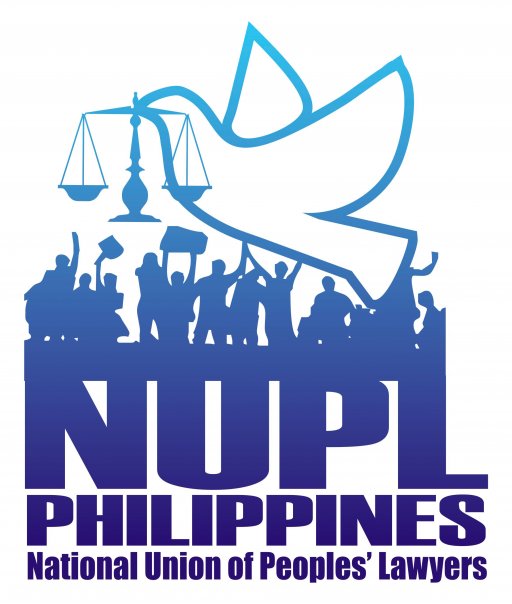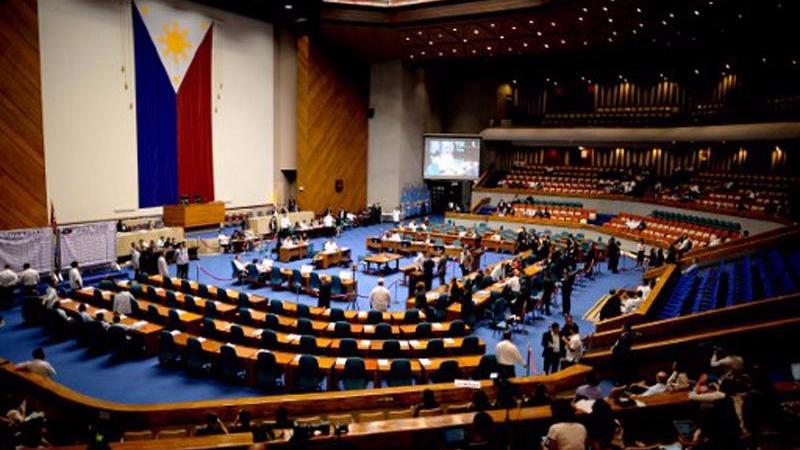Back in February, we in the National Union of Peoples’ Lawyers expressed our condemnation of the passage of Senate Bill No. 1083 or the Anti-Terrorism Bill in the upper chamber of Congress.
We warned that should its counterpart bill in the House of Representatives also pass, we may soon find ourselves faced with an immeasurably anti-democratic law, with even tighter restrictions to our constitutional rights and even narrower democratic space than we are seeing now.
We warned about how the proposed bill unduly expands the definition of “terrorism” – already-vague even under Republic Act 9372 or the current Human Security Act; how it gives the police and the military the power to arrest and detain suspects, without warrants, for up to 24 days; how it permits the conduct of surveillance for up to 90 days; how it intrudes into people’s privacy by permitting access to databases of personal information, bank records, and private communications, and the freezing of private assets; how it allows the courts to declare groups as terrorists even without notice or hearing, effectively doing away with due process; how it would enable the government to practically carry out mass arrests; and how it removes the very few safeguards written into R.A. 9372 – such as the monetary award of Php 500,000.00 per day of detention granted to those acquitted of terrorism charges, as well as the requirement that those who have been arrested without warrants be immediately brought before a judge.
Finally, we warned that the Anti-Terrorism Bill potentially criminalizes, as “inciting” to terrorism, legitimate exercises of free speech. This proposed law, we pointed out, would undermine our democracy and either threaten, restrain or discourage the people’s right to organize, criticize the government, protest and demand for a redress of their grievances.
A revisit of the provisions of the proposed legislation readily unmasks the broadening erosion of our basic human rights and the further denigration of our cherished civil liberties. Essentially leaving into the hands of law enforcement to determine what terrorist acts would actually include with its vague, overbroad and catch all enumeration of the crime’s elements, this makes the draconian proposal prone to abuse and misuse by the military and police, which agencies have – the records and experience would show – a long history of brutality, rights violations, and intolerance for any form of dissent.
The bill which contains imprecise and poorly worded provisions on the definition of “terrorist acts” and criminalizes threats to commit, planning to commit, conspiring or proposing to commit, inciting others to commit this rather vague concept of “terrorist acts,” give the security forces, from the top honchos to those on foot patrol, the license to commit rights violations with impunity. The police and the military are given much elbow room to subject to their own interpretations the concepts and adjectives found in these provisions. The bill further allows surveillance, wiretapping and recording of conversations of any person suspected of committing the loosely-defined concept of “terrorist acts.”
Should this bill become a law, we should then expect “uninvited” guests peering into our private spaces. This clearly violates our right to privacy enshrined in our Bill of Rights. Additionally, this proposed legislation legalizes red-tagging of organizations on suspicion of engaging in abstrusely termed “terrorist acts.” Thus, it essentially renders nugatory our freedom of association.
What else could come worse than being detained and deprived of your precious liberty for more than a month on mere inkling of involvement and engagement in indefinable acts of terrorism, absent any shade of due process before the courts, and the victims cannot decry this out-and-out violation of basic human rights.
On this note, one cannot deny that this bill diminishes the role of the judiciary into a mere stamp pad of legality and an instrument to the institutionalization of shortcuts, circumventions and even validation of outright violations and abuses. With the courts effectively being transformed to permanent structures of impunity under this bill, instead of a being a force to balance the scales of justice, where can victims now seek redress for the wrongs done against them?
On May 29, 2020, with the approval of the lower chamber’s counterpart bill by the House Committee on Public Order and Safety and the Committee on National Defense and Security, this country inched closer to the fruition of all the dangers that had been forecast.
Judging from the statements of Masbate Rep. Narciso Bravo Jr. – Chairman of the Committee of Public Order and Safety – we can expect the administration-controlled majority to try and ram this bill through plenary and get it approved on second and third reading with minimal debates. He was reported to have said that the House leadership had instructed the passage of a bill similar to the one already approved by the Senate in order to avoid a bicameral conference, and that there is an “urgency” which calls for the House to fast-track its approval.
For a proposed measure that bodes substantial restrictions on civil liberties and the grant of inordinate powers to law-enforcement agencies, this apparent effort on the part of the House majority to swiftly pass the Anti-Terrorism Bill poses a serious threat to all critics of government and independent-minded individuals, regardless of party or ideology, and even the ordinary citizen on the street.
This threat, however, is especially real and greater for organizations that have been relentlessly and viciously targeted and red-tagged by the likes of NTF-ELCAC as “terrorist” groups or fronts essentially because of the pro-poor and progressive agenda and advocacies that they carry.
The bill, should it become law, will only serve to worsen the climate of impunity that has made the Philippines fertile ground for extra-judicial killings, illegal arrests, and crackdowns against activists and progressive organizations and even ordinary citizens.
As such, there is an urgent need to stop the passage of this bill at the earliest opportunity. The dangers it poses are incalculable, and the risks are too great for people to turn a blind eye under the misguided assumption that their own freedoms would not be affected.
Those who may think that these warnings amount to fear-mongering need only recall the events of the past two months.
In the midst of the coronavirus pandemic, the Duterte administration has set up a junta-like body, in the guise of an inter-agency task force made up of military men, to dictate public health policy, control local government units, and practically run the affairs of the entire country.
It has let loose the police and the military, even barangay officials, on a defenseless, hungry, and desperate population, leading to an avalanche of human rights violations, misconduct and abuse of authority, and even reports of sexual abuse perpetrated by law-enforcement officials. It has resorted to immediately arresting and jailing tens of thousands for protesting the lack of government support, criticizing official action or inaction, violating unreasonable curfews, or simply stepping out of where they reside without facemasks or documentation.
Worst, this government has used the health emergency as a backdrop, even a justification, to whip its various agencies into action for the singular purpose of clamping down on dissent. From the NBI eagerly arresting people without warrants because of their social media posts, to the NTC shutting down ABS CBN, to the police and barangay officials berating, arresting, if not beating up, activists and volunteers who participate in relief efforts for poor communities or the legions of famished poor who have no choice, the government has shown no tolerance for criticism. And they take their clear cue from above.
Even now, President Duterte and his people have displayed their authoritarian tendencies. Allowing this administration, the added leeway and greater authority that come with a newer, more oppressive anti-terrorism law would open the floodgates to graver forms of abuses. The dangers that come with the Anti-Terrorism Bill are all too real to be ignored, and we cannot and should not wait until the final nail in the coffin has been hammered down.
Duterte urges House to fast-track passage of ‘Anti-Terror Bill
The arguments for the passage of this bill – posed by the Duterte Administration, its allies in Congress, and defense officials at large – all boil down to trusting them with the awesome power the law would bring as a means to combat the threat of terrorism.
Yet, candidly, without a shadow of doubt, this administration is not even remotely worthy of that trust.
Recent events have shown that the greater threat comes from a government ignorant, even outright dismissive, of the constitutional limits of its own authority and the importance and value of the rights and liberties of its people.
It is, therefore, imperative that attempts to pass the Anti-Terrorism Bill be fervently resisted, not only to protect those voices critical of the government, but also to protect everyone else who wishes to speak freely about matters of public interests and concern, without censorship or fear of punishment, without someone looking over our shoulder or stalking us, mostly without our knowing it.
This proposal reduces our Bill of Rights to a sheer litany of what every civilized society should aspire to achieve. It even showcases the government’s total abandonment of its international human rights obligations to the people. Hence, this draconian proposed measure has no place in our homes, in our schools, in our workplaces, in our communities. It is going back to the days of disquiet and nights of rage. #

#References:
Ephraim B. Cortez
NUPL Secretary General
+639175465798
Josalee S. Deinla
NUPL Spokeserson
+639174316396


Leave a Reply